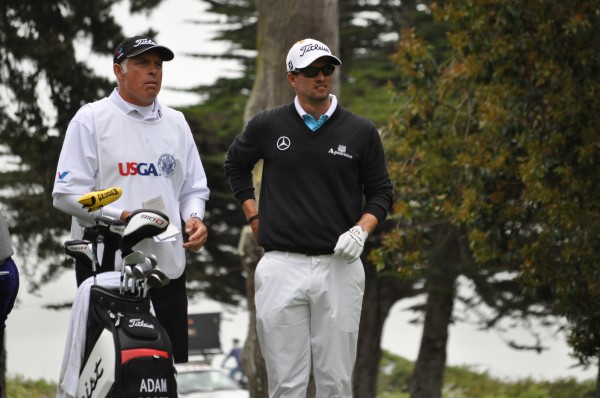
What is it with the media these days?
Following Adam Scott’s unfortunate performance at The Open Championship, words like “Choke” and “Collapse” rushed to the fore throughout the media, with overdramatic journalists dredging up stories about Greg Norman’s 1996 Masters, or Jean Van de Veld’s 1999 Open Championship, or the other “greatest chokes in history” yarns.
Soon after, Australia’s Olympic team suffered a similar fate, walking away from London with a bounty of silver medals along with an equal number of “Disappointing” headlines about their performance.
“Disappointing”. Seriously?
Let’s put something into perspective: There are an estimated 7 Billion people on this planet (with a capital B). Out of those 7,000,000,000 individuals, only a small number have the talent, opportunity, means and drive to succeed at the elite level of sport. Of that small percentage, only tiny fraction could qualify for their sport’s “pinnacle events”, and an even smaller fraction of that could go on to the semi-finals and/or finals. At that level, the difference between first and second (or even first and fiftieth) is often minimal.
In many countries across the world, seeing an athlete on the podium is cause for celebration or a ticker-tape parade. But here in Oz, things are a bit different. For the Olympics, the media came down exceptionally hard on our athletes, criticising things like their desire, their training, the Australian Olympic Committee, sports funding and anything else they could think of.
As a sports-loving nation, we have become accustomed to winning. Whether it’s Olympic swimming, World Cricket, PGA TOUR Golf or any number of other world-class sports, we love to win. And when we don’t win, the media has become accustomed to labelling the teams/athletes as disappointments or flat-out failures. It’s a shame.
Now, don’t get me wrong, I know that athletes in all sports strive to be the very best, and for some, second place is like “kissing your sister”. But when did coming in second warrant being labelled a “failure” by the media?
Coming in second is part of any competition. Jack Nicklaus, for example, is celebrated for his record 18 major victories, yet few people know that he also owns the record for runner-up finishes in majors (19).
History remembers the winners, while the media generally ignores the runners-up. While Rory McIlroy charged to victory at The PGA Championship, can anyone really remember who came in second? (David Lynn, by the way, who nearly stepped on an alligator during the event, and has a heartwarming backstory to his own career). And while Adam Scott “collapsed” at the Open, the REAL story (which was largely ignored) was the fact that a beleaguered Ernie Els overcame a six-stroke deficit and battled his way to the top after most of the world’s media had previously written him off as “past his prime”. Heck, Ernie wasn’t even invited to The Masters this year, despite being one of history’s best golfers!
Certainly, Adam’s slip on the final four holes was worthy of a story. But unlike many of my media colleagues, I don’t label it as a choke. Let’s face it, the course was difficult. I mean REALLY difficult. Among the leaders on the final day, players like Tiger Woods, Graeme McDowell and Brandt Snedeker all shot over par. Sure, Adam DID bogey the last four holes, but remember that out of 83 players in the final round, there were a total of only eight birdies on holes 15 and on 17 (four on each). And a lot of “Bogeys/Others”. In my opinion Adam only really made one mistake during that four-hole span: hitting 3-wood off the tee on 18 instead of the iron which he had used for the three previous days. And for that, I reckon a lot of the blame should be on the shoulders of caddie Steve Williams.
Like our Olympic athletes, Adam didn’t choke. Collectively, they just got beaten. And we–as comedian Arj Barker once said—need to “get a deck of cards, and deal with it.”
So the next time one of our athletes walks away from an event having secured “Second Place”, let’s not be disappointed that they weren’t as good as the one person who beat them, rather let’s celebrate the fact that they beat the other 6,999,999,998 people on the planet.




![Win the golfing experience of a lifetime, at the Hawai‘i International Week of Golf, valued at $6,900 [Winner Announced] Win the golfing experience of a lifetime, at the Hawai‘i International Week of Golf, valued at $6,900 [Winner Announced]](https://www.insidegolf.com.au/wp-content/uploads/Hawaii-Comp-500x294.jpg)
Pingback: Inside Golf editor wins esteemed Golf Media Award : Inside Golf. Australia's Most Read Golf Magazine